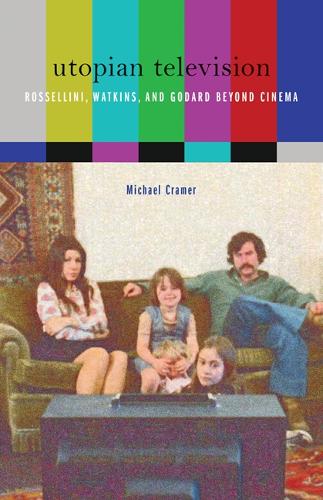
Utopian Television: Rossellini, Watkins, and Godard beyond Cinema
(Paperback)
Publishing Details
Utopian Television: Rossellini, Watkins, and Godard beyond Cinema
By (Author) Michael Cramer
University of Minnesota Press
University of Minnesota Press
1st June 2017
United States
Classifications
Tertiary Education
Non Fiction
791.45
Physical Properties
Paperback
304
Width 140mm, Height 216mm, Spine 38mm
Description
In Utopian Television, Michael Cramer examines works of the great filmmakers Roberto Rossellini, Peter Watkins, and Jean-Luc Godard, all of whom looked to television as a promising new medium even while remaining critical of its existing practices. Cramer reveals the extent to which television inspired and shaped hopes of a better future as well as of better moving image.
Reviews
"Both theoretical treatise and intellectual history, Michael Cramers intervention matches the utopian vision of its subject as he efficiently and astutely navigates us through the thorny politics of art cinema."Karl Schoonover, University of Warwick
"Michael Cramer's fine book explores those paths not taken that define a genre, that interplay between film and TV pioneered by Rossellini in service of a now utopian social pedagogy. Peter Watkins' understudied work, along with Rossellini's experimentsunfamiliar to those who only know him through the early masterpiecesthrow a wholly new light on Godard himself, and Cramer's luminous readings of the works are as stimulating as his overall theorization of this new, or perhaps missed, form."Fredric Jameson, Duke University
"Rich and theoretically rigorous text."CHOICE
"Cramer has done an invaluable service to those of us who esteem these works, contextualising them through contemporary writing and interviews by the filmmaker."Sight and Sound
"Michael Cramers new book, Utopian Television, is an impressively constructed work of scholarship that does more than display certain utopian trends in its three subjects; it traces a discursive movement of utopian thinking through technologies. The book is a dynamic and engaging work that will be of interest to more than television scholars, dealing with movements between cinema and television, concepts of the image, and in-depth discussions of auteurs."Senses of Cinema
Author Bio
Michael Cramer is assistant professor of film history at Sarah Lawrence College.
